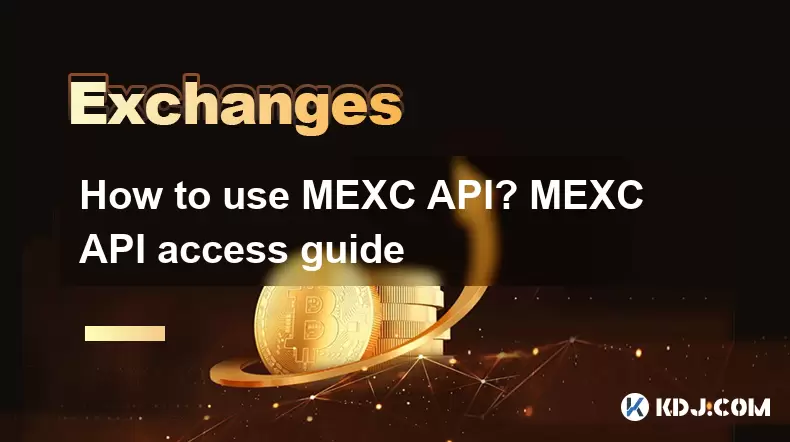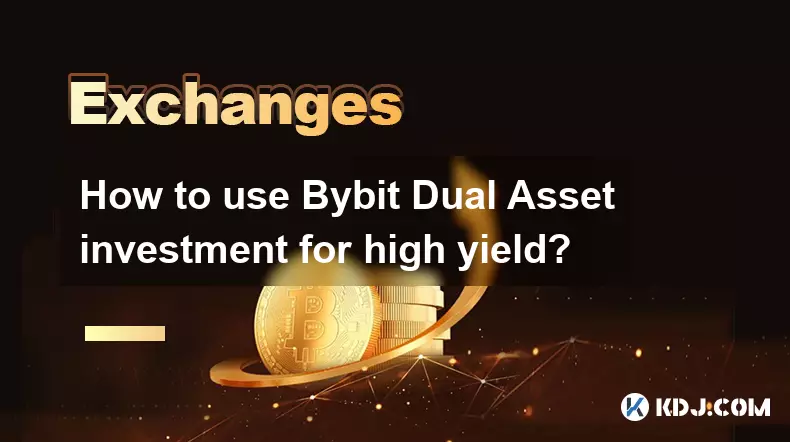-
 bitcoin
bitcoin $87959.907984 USD
1.34% -
 ethereum
ethereum $2920.497338 USD
3.04% -
 tether
tether $0.999775 USD
0.00% -
 xrp
xrp $2.237324 USD
8.12% -
 bnb
bnb $860.243768 USD
0.90% -
 solana
solana $138.089498 USD
5.43% -
 usd-coin
usd-coin $0.999807 USD
0.01% -
 tron
tron $0.272801 USD
-1.53% -
 dogecoin
dogecoin $0.150904 USD
2.96% -
 cardano
cardano $0.421635 USD
1.97% -
 hyperliquid
hyperliquid $32.152445 USD
2.23% -
 bitcoin-cash
bitcoin-cash $533.301069 USD
-1.94% -
 chainlink
chainlink $12.953417 USD
2.68% -
 unus-sed-leo
unus-sed-leo $9.535951 USD
0.73% -
 zcash
zcash $521.483386 USD
-2.87%
How to use MEXC API? MEXC API access guide
MEXC API enhances trading with automation, real-time data, and portfolio management; set up an API key to access public and private endpoints efficiently.
Jun 07, 2025 at 03:42 pm

Introduction to MEXC API
MEXC Global, one of the leading cryptocurrency exchanges, offers an extensive API (Application Programming Interface) that enables users to automate trading, manage their portfolios, and access real-time market data programmatically. Understanding how to use the MEXC API can significantly enhance your trading experience, allowing for faster and more efficient operations.
Registering and Setting Up an API Key
Before diving into the technical aspects of the MEXC API, you need to set up an API key. Here's how to do it:
- Log into your MEXC account. If you don't have an account, you'll need to create one first.
- Navigate to the API Management section. You can find this under the 'Account' or 'Settings' menu, depending on the interface layout.
- Create a new API key. You will be prompted to enter a name for your API key, which helps you manage multiple keys if needed.
- Enable the permissions you need. MEXC allows you to control the access levels of your API key, such as read-only or trading permissions.
- Confirm the creation of the API key. You will receive an API Key and an API Secret. Keep these safe and never share them with anyone.
Understanding MEXC API Endpoints
The MEXC API is divided into several endpoints, each serving different functions. Here’s a brief overview:
- Public API: These endpoints provide access to market data, such as ticker prices, order book, and trade history. No API key is required to access these.
- Private API: These require authentication and allow you to manage your account, including placing orders, withdrawing funds, and checking balances.
- WebSocket API: For real-time data streaming, which is crucial for high-frequency trading and real-time analytics.
Using the Public API for Market Data
To start using the public API, you'll need to make HTTP requests to the MEXC API endpoints. Here’s an example of how to fetch the latest ticker data:
- Choose your programming language. Common choices include Python, JavaScript, or any other language with HTTP request capabilities.
- Set up an HTTP client. In Python, you might use the
requestslibrary. - Make a GET request to the appropriate endpoint. For example, to get the ticker for the BTC/USDT pair, you would request
https://www.mexc.com/open/api/v2/market/ticker?symbol=BTC_USDT.
Here’s a Python example using the requests library:
import requests
response = requests.get('https://www.mexc.com/open/api/v2/market/ticker?symbol=BTC_USDT')data = response.json()print(data)
This code fetches the ticker data for the BTC/USDT pair and prints it.
Authenticating with the Private API
To use the private API, you need to authenticate your requests using your API Key and Secret. Here’s how to do it:
- Generate a timestamp. This is typically in milliseconds since the Unix epoch.
- Create a signature. Using the HMAC-SHA256 algorithm, you sign a string that includes the timestamp and any other required parameters.
- Include the API Key, timestamp, and signature in your HTTP request headers.
Here’s an example in Python:
import requestsimport timeimport hmacimport hashlib
api_key = 'your_api_key'api_secret = 'your_api_secret'
timestamp = int(time.time() * 1000)params = f'timestamp={timestamp}'signature = hmac.new(api_secret.encode('utf-8'), params.encode('utf-8'), hashlib.sha256).hexdigest()
headers = {
'X-MEXC-APIKEY': api_key,
'Content-Type': 'application/json'
}
response = requests.post('https://www.mexc.com/open/api/v2/order/place', headers=headers, data=params + f'&signature={signature}')data = response.json()print(data)
This example shows how to place an order using the private API.
Placing Orders and Managing Trades
Using the MEXC API, you can automate the process of placing orders and managing your trades. Here are some key operations you might perform:
- Placing a Market Order: Use the
order/placeendpoint with thetypeparameter set toMARKET. - Placing a Limit Order: Use the same endpoint but set
typetoLIMITand include thepriceparameter. - Canceling an Order: Use the
order/cancelendpoint, specifying theorderIdyou want to cancel. - Checking Order Status: Use the
order/statusendpoint to get the current status of your orders.
Each of these operations requires the appropriate parameters and authentication, as described in the previous section.
Withdrawing Funds and Managing Balances
The MEXC API also allows you to manage your funds, including withdrawals and checking your account balance. Here’s how to do it:
- Checking Balance: Use the
account/infoendpoint to get your current balance across all currencies. - Withdrawing Funds: Use the
withdraw/applyendpoint, specifying thecurrency,amount, andaddressto which you want to withdraw. Note that additional security measures, such as 2FA, may be required for withdrawals.
Handling Errors and API Rate Limits
When working with the MEXC API, it's important to handle errors and respect the rate limits imposed by the exchange. Here’s what you need to know:
- Error Handling: The MEXC API returns HTTP status codes and error codes in the response body. Always check these to understand what went wrong and handle errors gracefully in your code.
- Rate Limits: MEXC imposes rate limits on API requests to prevent abuse. Exceeding these limits can result in temporary bans. Be sure to implement rate limiting in your code to stay within these bounds.
Frequently Asked Questions
Q1: Can I use the MEXC API for algorithmic trading?Yes, the MEXC API is well-suited for algorithmic trading. It provides endpoints for placing orders, checking balances, and accessing real-time market data, all of which are essential for developing and running trading algorithms.
Q2: Is there a cost associated with using the MEXC API?MEXC does not charge a direct fee for using their API. However, normal trading fees apply to any trades executed through the API. Always check the latest fee structure on the MEXC website.
Q3: How secure is the MEXC API?The MEXC API uses industry-standard security practices, including API key authentication and HMAC-SHA256 signatures. However, the security of your API usage also depends on how you manage your API keys and implement your code. Never share your API keys and use secure methods to store and transmit them.
Q4: Can I use the MEXC API on mobile devices?Yes, you can use the MEXC API on mobile devices as long as you have a programming environment set up that can make HTTP requests and handle the necessary cryptographic operations for authentication.
Disclaimer:info@kdj.com
The information provided is not trading advice. kdj.com does not assume any responsibility for any investments made based on the information provided in this article. Cryptocurrencies are highly volatile and it is highly recommended that you invest with caution after thorough research!
If you believe that the content used on this website infringes your copyright, please contact us immediately (info@kdj.com) and we will delete it promptly.
- Bitcoin's New Rhythm: Decoupling, Cycles, and the Wall Street Waltz
- 2026-02-12 09:40:01
- Berachain's Strategic Pivot Fuels BERA Jump: A New Era for DeFi Yields
- 2026-02-12 09:50:00
- Rough Waters for Coinbase: CEO Brian Armstrong's Fortune Shrinks, Earnings Outlook Murky
- 2026-02-12 09:55:01
- Danske Bank Navigates Crypto Waters Amidst Evolving Regulation
- 2026-02-12 06:45:01
- BlackRock, Bitcoin Core, and Devs: The Crypto Crossroads of Code and Capital
- 2026-02-12 06:50:02
- Web3 Marketing Agencies Chart New Course for 2026: The Rise of Conviction and Community
- 2026-02-12 07:40:01
Related knowledge

How to use Bybit VIP program to reduce trading fees?
Feb 11,2026 at 07:19am
Understanding Bybit VIP Program Structure1. The Bybit VIP program categorizes users into tiers based on their 30-day average net asset value and tradi...

How to buy JasmyCoin (JASMY) on Bybit?
Feb 09,2026 at 03:40am
Creating a Bybit Account1. Navigate to the official Bybit website and click the 'Sign Up' button located in the top-right corner. 2. Enter a valid ema...

How to contact Bybit customer support for urgent help?
Feb 05,2026 at 11:40pm
Accessing Bybit Support via Live Chat1. Log in to your Bybit account using the official website or mobile application. 2. Navigate to the Help Center ...

How to buy Injective (INJ) on Bybit in 2026?
Feb 09,2026 at 05:39pm
Account Registration and Verification Process1. Navigate to the official Bybit website and click the “Sign Up” button located in the top-right corner....

How to use Bybit Dual Asset investment for high yield?
Feb 06,2026 at 12:20am
Understanding Bybit Dual Asset Investment Mechanics1. Dual Asset Investment is a structured product offered by Bybit that combines a stablecoin deposi...

How to buy Celestia (TIA) on Bybit exchange?
Feb 10,2026 at 09:39pm
Creating a Bybit Account1. Visit the official Bybit website and click the “Sign Up” button located at the top right corner of the homepage. Enter a va...

How to use Bybit VIP program to reduce trading fees?
Feb 11,2026 at 07:19am
Understanding Bybit VIP Program Structure1. The Bybit VIP program categorizes users into tiers based on their 30-day average net asset value and tradi...

How to buy JasmyCoin (JASMY) on Bybit?
Feb 09,2026 at 03:40am
Creating a Bybit Account1. Navigate to the official Bybit website and click the 'Sign Up' button located in the top-right corner. 2. Enter a valid ema...

How to contact Bybit customer support for urgent help?
Feb 05,2026 at 11:40pm
Accessing Bybit Support via Live Chat1. Log in to your Bybit account using the official website or mobile application. 2. Navigate to the Help Center ...

How to buy Injective (INJ) on Bybit in 2026?
Feb 09,2026 at 05:39pm
Account Registration and Verification Process1. Navigate to the official Bybit website and click the “Sign Up” button located in the top-right corner....

How to use Bybit Dual Asset investment for high yield?
Feb 06,2026 at 12:20am
Understanding Bybit Dual Asset Investment Mechanics1. Dual Asset Investment is a structured product offered by Bybit that combines a stablecoin deposi...

How to buy Celestia (TIA) on Bybit exchange?
Feb 10,2026 at 09:39pm
Creating a Bybit Account1. Visit the official Bybit website and click the “Sign Up” button located at the top right corner of the homepage. Enter a va...
See all articles










































































